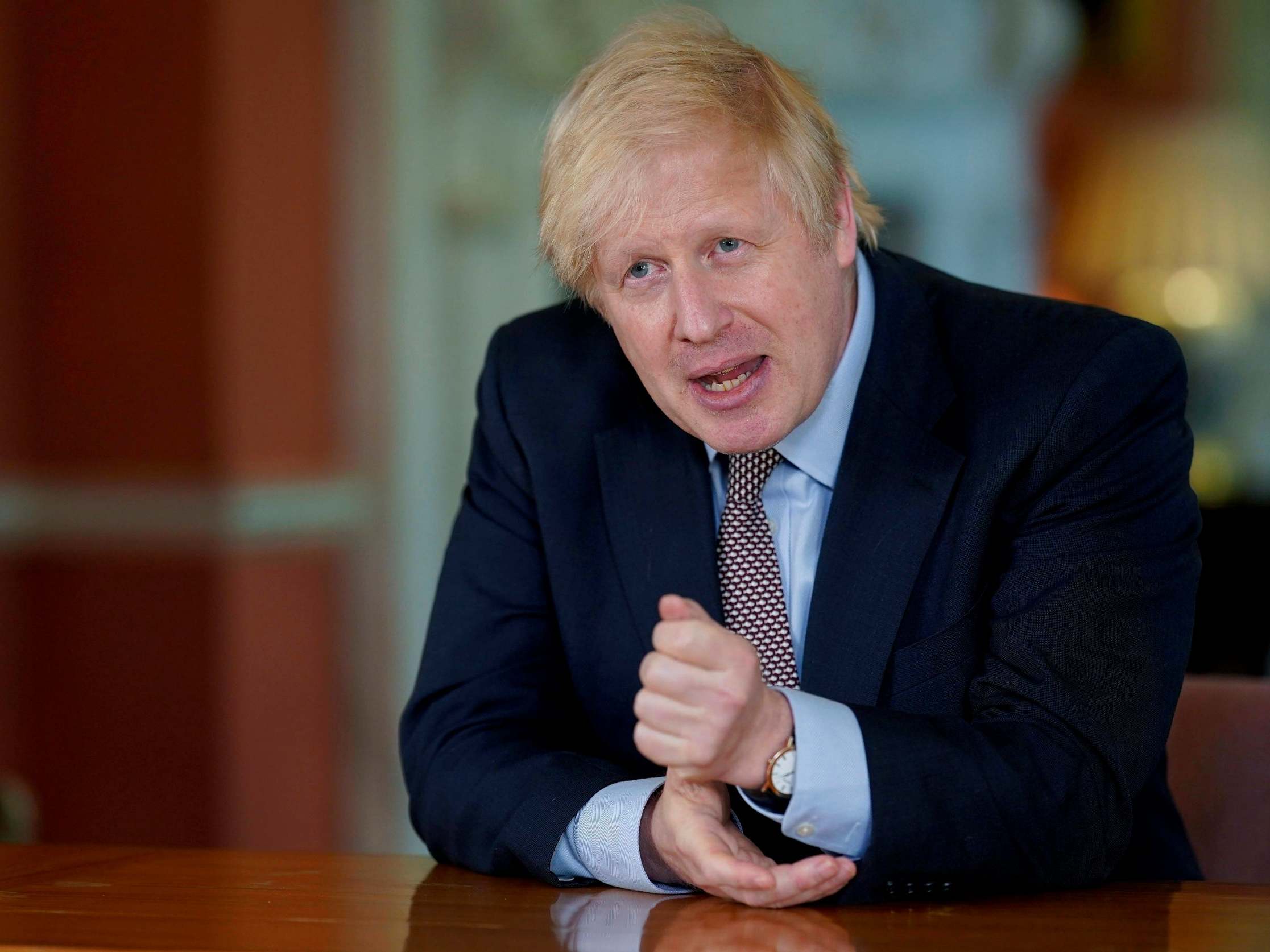Coronavirus has shown the world it needs a new political body which can truly 'follow the science'
Politics needs its own CERN: an internationally staffed, intellectually diverse laboratory dedicated to advancing democratic and liberal frontiers – and imagining new ones – at the national and global level, write Neil Renic and Benjamin Tallis

The European Organisation for Nuclear Research (known as CERN) is the largest and most well-known particle physics laboratory in the world. Its international status is earned; since its 1954 founding, CERN researchers have made some of the most significant and exciting scientific discoveries of the modern age. As one columnist observed when visiting the organisation, “there isn’t really anywhere else quite like it”.
It is time for this to change. Covid-19 shows that politics needs its own CERN: an internationally staffed and intellectually diverse laboratory dedicated to advancing democratic and liberal frontiers – and imagining new ones – at the national and global level. This new institution would need to combine the critical depth of academic scholarship with the relevance of think tank research in order to put political knowledge to better public use.
Covid-19 has wreaked havoc on the physical health and economic security of millions. In the process, however, it has shifted public attention and trust, from the opportunistic populists who have dominated recent politics, to medical professionals and scientists. To some, it seems that “the world has rediscovered its faith in expertise.”
Yet, like it or not, politics isn’t going anywhere. It can’t. Politics entangles all human activity, even the dispassionate and evidence-based findings of natural science.
What Covid-19 demonstrates above all else is the need for better politics, capable of using science appropriately, overruling faulty science and adjudicating between competing scientific claims and their policy implications. But we need politics for more than that too – we need it to make value judgements about how we want to live and to push the discussion beyond science.
Before Covid-19, too many people were losing faith in the ability of democratic politics to fulfil these core functions. A revival of trust is needed, to beat Covid-19 and meet wider challenges. That’s where a Political CERN, first mooted by the futurist Jairus Grove at an event in Hamburg, would come in.
The diversity of state responses to Covid-19 has highlighted the importance of political leadership and institutional capacity. If democratic politics is to have a future, both must be safeguarded where they are strong and rebuilt where they are weak.
A Political CERN would work to do both. Its international focus would firstly help mitigate the parochialism that too often impairs political decision making today. National politics is informed by a state’s own history, culture, and traditions – but it can also be paralysed by these same factors. An overtly international and collaborative organisation would compare existing approaches, share best practices and generate fresh ideas.
Another core focus of this new centre would be the politics of timing. As the present crisis illustrates, the question of when to act is often just as important as how. According to conventional wisdom, democracy, for all its other strengths, is at its weakest in a time-sensitive emergency. Some have managed to buck this trend, taking rapid action, with public consent, to avert the crisis. Many others, however, have not and Covid-19 has prompted much debate over the merits of democratic versus authoritarian approaches.
This new project would help boost the responsiveness of the former.
But bolstering democratic politics at the national level won’t work unless it is sustained internationally. A Political CERN would also need to address long-standing anxieties over the liberal international order, and many of those anxieties have been exacerbated by Covid-19.
The fracturing post-war consensus and widespread, growing resignation that liberal democracy is doomed to decline, have entrenched a deep self-doubt across the West. A key task for a Political CERN would be to push back against such fatalism; to remind publics and politicians alike of the unrivalled and historically verified capacity of free and open societies to enrich the lives of their citizens – and propose ways to share these benefits more equitably at home and abroad.
The new body would identify opportunities for coalition building and help liberal democracies strengthen their capacity to act in concert on the world stage.
In doing so, it would build on and better realise the potential of existing projects, such as The Alliance for Multilateralism – a German-French initiative launched last year – and look for ways to give them more bite.
The final, and potentially most important, task of a Political CERN would be to re-imagine the future. Specifically, it would need to revive belief that the liberal democratic future can improve significantly upon the present.
The decline of “The West” in relation to its adversaries, while undoubtedly true, is also overstated. The crisis afflicting the liberal democratic world is primarily a cognitive one – an inability to imagine more than decay, stasis, or marginal improvement going forward.
To achieve a positive and ambitious vision for the future and re-enchant citizens with democracy, the work of a Political CERN would need to address well-founded concerns over inequality and injustice, as well as fears over climate change. Crucially, it would also need to offer hope and provide inspiration.
The institution we envision would balance practically minded policy advice with ambitious vision; frank critique with constructive optimism. Most importantly, it would champion and improve the politics that underpins it all.
Benjamin Tallis and Neil Renic are senior researchers at the Institute for Peace Research and Security Policy in Hamburg
Join our commenting forum
Join thought-provoking conversations, follow other Independent readers and see their replies
Comments
Bookmark popover
Removed from bookmarks